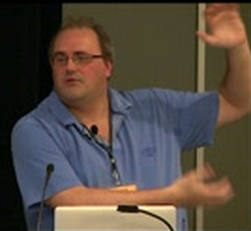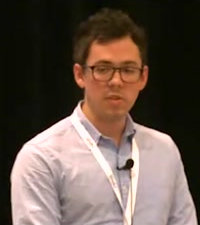CppCon 2014 Emscripten and asm.js: C++'s role in the modern web--Alon Zakai
 Have you registered for CppCon 2015 in September? Don’t delay – Early Bird registration is open now.
Have you registered for CppCon 2015 in September? Don’t delay – Early Bird registration is open now.
While we wait for this year’s event, we’re featuring videos of some of the 100+ talks from CppCon 2014 for you to enjoy. Here is today’s feature:
Emscripten and asm.js: C++'s role in the modern web
by Alon Zakai
Summary of the talk:
All major web browsers are written in C++, but C++ is starting to fill an important role in web *content* as well: while JavaScript is the only standards-compliant language available to websites, compiling other languages to JavaScript has been shown to be practical and effective. This talk will explain how Emscripten, an LLVM-based open source compiler from C++ to JavaScript, lets you run a C++ codebase on the web at near-native speed. To achieve that level of performance, Emscripten emits asm.js, a strict subset of JavaScript that is easy for JavaScript engines to optimize, and was designed specifically as a compilation target for languages like C and C++. We'll also discuss some of the more challenging aspects of compiling C++ to JavaScript, stemming from the C++ language itself, libraries and toolchains, and some thoughts on possible solutions.

 Have you registered for CppCon 2015 in September? Don’t delay –
Have you registered for CppCon 2015 in September? Don’t delay –  Have you registered for CppCon 2015 in September? Don’t delay –
Have you registered for CppCon 2015 in September? Don’t delay –  Have you registered for CppCon 2015 in September? Don’t delay –
Have you registered for CppCon 2015 in September? Don’t delay –  Have you registered for CppCon 2015 in September? Don’t delay –
Have you registered for CppCon 2015 in September? Don’t delay –